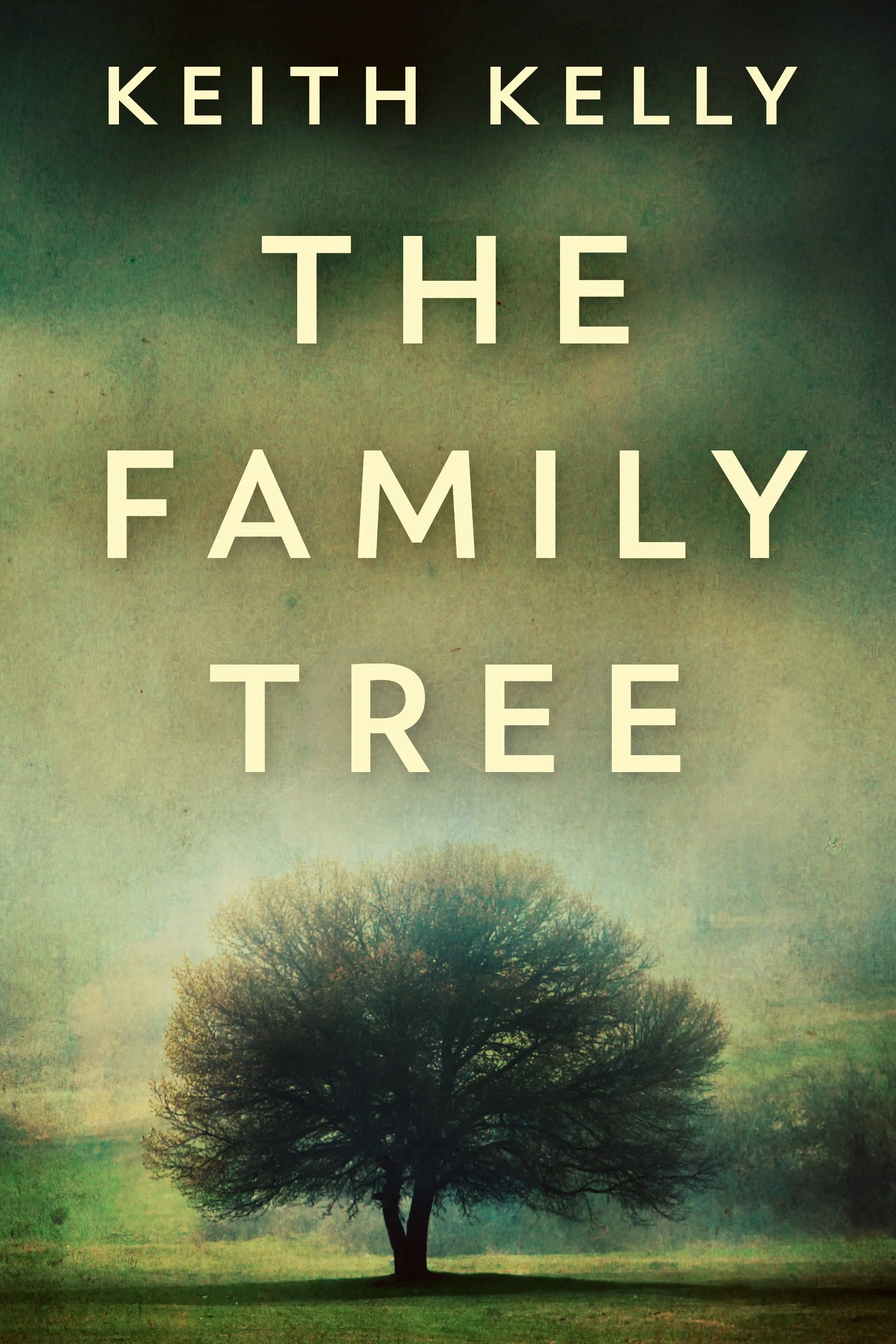The Family Tree - Keith Kelly
The Family Tree by Keith Kelly
Book excerpt
Emma Colburn was born in 1885 on a small farm in Nebraska. Her parents, Fitzgerald and Thelma, felt overjoyed that they birthed a healthy daughter. They were poor farmers on a modest farm. Fitzgerald’s mother, born into slavery, was one of thirteen slaves in Nebraska in 1855. Fitzgerald’s father was his mother’s master. Little Fitzgerald was born light-skinned, Thelma, his wife, a white woman. Genetics blessed their offspring. Fitzgerald knew two things. If Emma looked black, she would have a tough time in the world, and if she looked mixed, it would be worse. Emma, being born looking like a white baby, he saw as a blessing. They never had much, but they had love.
Fitzgerald and Thelma never thought about God or religion until their daughter’s birth. They began reading the Bible and holding worship in their house among neighbors. Many farms and people struggled to make ends meet, needing miracles and searching for anything to help them. Fitzgerald began the Smithville Church of Christ, which set up a long-lasting tradition in his family. Fitzgerald and Thelma worked hard to make sure Emma always had food, clothes, and love. Neither of them had an education and quit school in the sixth grade to help on the farm. They vowed that Emma would get her learning.
As Emma grew, she became her daddy’s little girl, going everywhere with him. In the summer, she went with him to the fields to farm instead of helping her mom with household duties. Emma never wanted to be out of her father’s sight. She loved her mother, but she became particularly close to her father.
One Christmas, Emma remembered receiving a gift, despite there never being extra money for gifts. That Christmas, however, when she was six, she awoke to find a peppermint stick in her stocking. She quickly dumped the sock’s contents out on the floor, and instead of the usual apple falling out, a huge bright red and white peppermint stick hit the floor. She immediately ran and hugged her father. She carried this memory with her until the day she died.
At six years old, Emma already knew a lot about growing crops and riding horses. She and her father would race across the plains on the way back from town. Emma loved going into the small town of Smithville. The only time that Fitzgerald wouldn’t take her into town was on Thursday afternoons. It was years later before she realized why she couldn’t go with him. That’s when he visited the saloon to drink and spend two hours with Ida Lee, the Madam. Ida seldom worked the rooms, but for Fitzgerald, she looked forward to it. There were four girls, including herself, in the barroom. The Madam took care of them like a mother and loved them. She protected them against drifters who came into town. Tommy Snark, the saloon owner, ran a tight operation and didn’t put up with any ruckus, just as Ida Lee didn’t put up with any mistreatment of her girls.
Emma liked Ida Lee. Every time Ida Lee saw her in town, she would give her a piece of candy. Ida was one of the friendliest women Emma ever met. Ida Lee adored Emma. Emma noticed her dad and Ida Lee were friendly towards each other. The two of them would talk, laugh and stare eat each other. Emma was too young to understand this, but she learned her father and Ida Lee had fallen in love over the years.
Ida Lee had broken many cowboys’ hearts over the years. To her, it was a job, except with Fitzgerald. She would have quit it all to be with him. He loved her, but he also cherished his wife. They both knew he would never leave Thelma. The only man to break Ida’s heart was Fitzgerald.
Ida’s girls brought a lot of business to the saloon, and Tommy paid them decent wages for it. All the girls had broken a cowboy's heart or two, that’s for sure. Claire, nineteen years old, with the look of an angel, beautiful in every way, wandered into the barroom on a windy Tuesday afternoon, just a girl, when Ida Lee took her in as her own. A tornado hit as Claire’s family crossed the Kansas plains. Claire survived by hiding in a ravine. When she closes her eyes, she can still see that massive black tornado ripping and shredding brush in its path. Almost a clear sky all around this swirling cloud devouring the blue canvas above. And the sound, like a flying train.
Sissy was the oldest of Ida’s girls at twenty-five. She lived in a tiny house on the edge of town and was the only one who lived outside the saloon. When younger, Sissy married a man from El Paso. After he killed a Sheriff for the fun of it, she met a man on a cattle drive. As they passed through Nebraska, he left her in Smithville. Then there was Sue, the wild type that many of the cowboys liked. She was born a pastor’s daughter in East Texas among the piney woods.
Ida Lee was thirty-five years old. She had been working at the saloon since the age of fifteen. Tommy Snark and his bride took her in when they saw her walking the streets of Smithville, skinny, hungry, and wild. She had no recollection and still doesn’t know how she ended up in Smithville. The only thing she recalls is a man hid her in some bushes by the river when she was tiny. She remembers hearing Indian chants. She figures they killed the man who hid her.
Emma was more intelligent than the average kid, so she picked up on her father and Ida Lee's feelings for each other. This dawned on her because Fitzgerald looked at Thelma the same way as he looked at Ida Lee. Emma knew he loved her mother, so she concluded he loved Ida Lee as well.
Thelma, Emma’s mother, showed her how to keep up a house while her father taught her farming. Emma was a social kid and made good grades in school; she knew more about her subjects than her teacher, Ms. Smacks. Emma wasn’t shy. She talked to everyone, and people found her pleasant. Many times she told Bible stories to the congregation of Smithville. She liked school and playing with her friends. Sometimes one of her friends would come home with her after school to play marbles or jacks.
Often Emma and her friends would go to Mr. Hanson’s store after school for a pop. Mr. Hanson was a jokester, always playing tricks on the kids by telling them there wasn’t any candy, or he’d take his teeth out telling them he ate too many sweets and lost them. Also, he would hide rubber snakes behind the candy bars. Mr. Hanson meant it in good fun. He was a good-hearted man and decorated soldier from the Civil War. Emma wasn’t sure what war or decorated meant but figured it important because everyone respected him.
Emma enjoyed a decent life in Smithville even though they didn’t have much money. There was plenty of love in the household. That all changed when Emma turned fifteen. Two weeks after her birthday, on a hot summer August evening, she woke to the smell of smoke. Emma coughed as feelings of terror raged throughout her little body. She screamed for her parents. Little Emma could see smoke coming from under her bedroom door and knew not to open it. Suddenly, she heard a man calling her name, and then he grabbed her, and they got out through her bedroom window. It was Mr. Hanson who saved her. He was passing by and saw the house engulfed in flames. The only room he could reach was Emma’s. She was the sole survivor. Afterward, Emma carried her mother’s picture and her father’s watch everywhere. Emma had dark circles under her eyes from crying, begging God in her prayers to bring them back. She couldn’t imagine what her future would be like.
“Where will live? What will I do?” The world was still spinning, and she felt lost and alone. Emma stayed with Mr. Hanson and his wife for two weeks when Ida Lee took her in to live with her.
















Praesent id libero id metus varius consectetur ac eget diam. Nulla felis nunc, consequat laoreet lacus id.